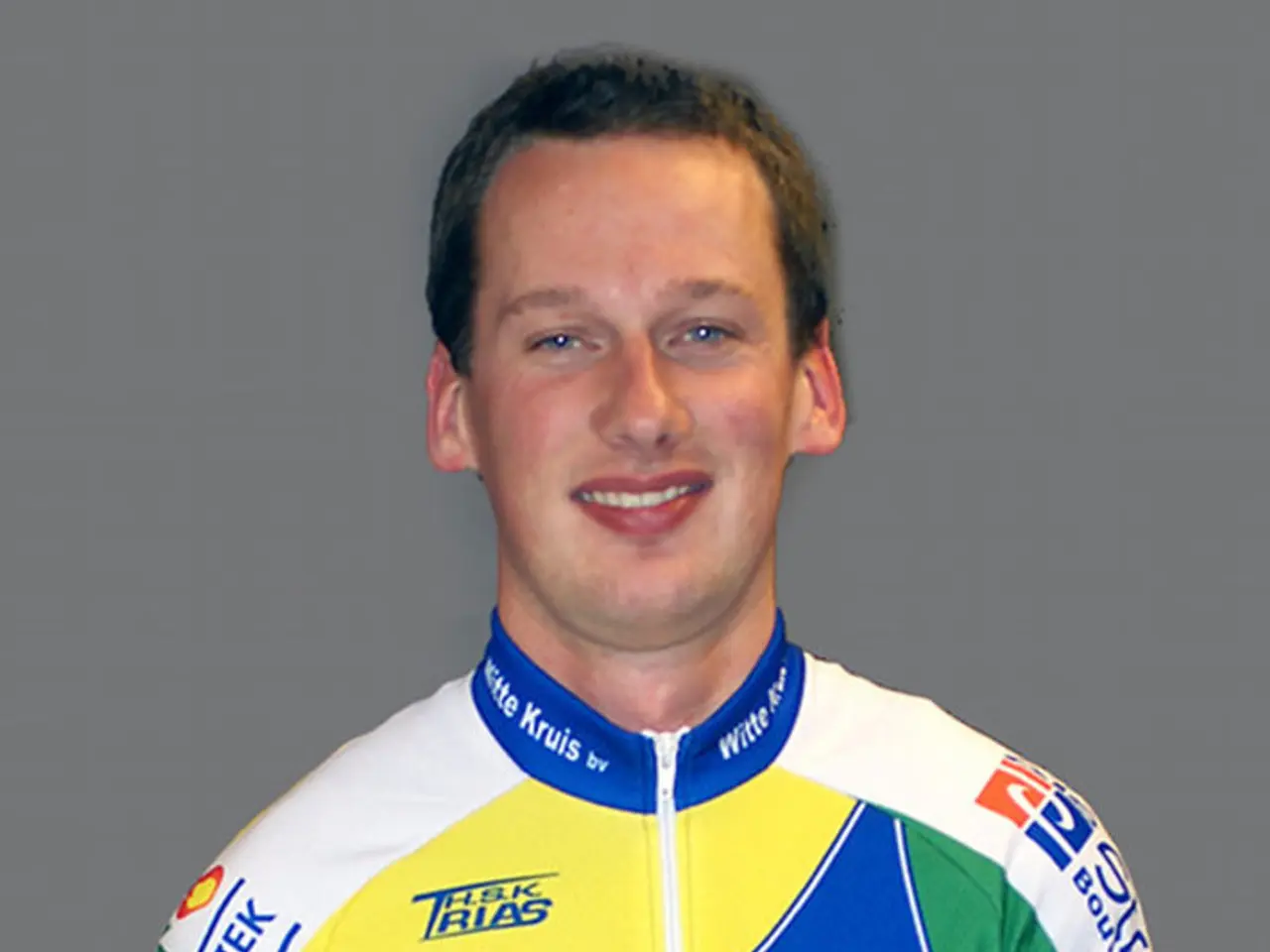Nutrition Industry Entrepeneur Discloses Motives Behind Partnership with Coleen Rooney
In the ever-evolving world of health and fitness, one company is making waves in the European sports nutrition sector - Applied Nutrition. Founded by Tom Ryder in 2014, the company started humbly in a small factory in Knowsley, near Liverpool, but has since grown into one of Europe's fastest-growing brands.
Ryder, a firm believer in personal discipline, has seen a shift in the mindset of women, moving from a simple desire to be skinny to a desire to be healthy, fit, and strong. This change in attitude mirrors the broader trend in the sports nutrition market, which is projected to increase from approximately USD 6.7 billion in 2025 to USD 10.1 billion by 2032, with a compound annual growth rate (CAGR) of 5.9%.
The market's growth is driven by rising health consciousness, increased interest in fitness and wellness, and demand for products aiding muscle recovery and energy enhancement, particularly protein supplements. Notably, there is a consumer shift towards plant-based, organic, and clean-label sports nutrition products, reflecting sustainability and health trends.
Applied Nutrition, initially selling protein shakes to muscle-bound bodybuilders in sweaty gyms, has evolved into "a brand for everybody" that appeals to a wider range of consumers. The company's product line now includes a diverse range of supplements, catering to various fitness levels and lifestyles.
One of the challenges faced by Applied Nutrition is the rising cost of whey, a vital ingredient in protein shakes. However, the company has managed to pass on these cost increases to customers in the form of higher prices, maintaining their profit margins, which are among the highest in the health and beauty sector, even surpassing those of French giant L'Oreal, with only Estee Lauder boasting larger margins.
The company's success is not limited to Europe. Applied Nutrition has raised nearly £160 million in its flotation and has the financial firepower to continue expanding, especially in the US. The company's products are mainly sold through distributors in local markets and exports its products overseas, but they can also be found in major supermarkets and online.
Hiring Coleen Rooney, a celebrity known for the 'Wagatha Christie' case, as a brand ambassador has helped increase the number of female customers at Applied Nutrition from 20% to over 40%. Rooney's audience, primarily women, aligns perfectly with the company's target demographic.
The sports nutrition market is highly competitive, with well-established brands like Glanbia (Optimum Nutrition), USN, and MyProtein dominating through aggressive marketing, athlete endorsements, and broad product portfolios. However, Applied Nutrition must adopt innovative product development and marketing strategies to capitalise on market growth and sustain brand visibility in Europe.
As the market embraces plant-based and clean-label trends, companies aligning their products accordingly could gain competitive advantages. Applied Nutrition, with its commitment to providing high-quality, clean-label products, is well-positioned to capitalise on this trend.
In a remarkable turn of events, Ryder, who netted £67 million when shares in Applied Nutrition were listed on the London stock market last year, has admitted to not spending enough time with his eldest daughters when they were young. Now, he is making up for lost time.
Despite the Government's raid on employers' National Insurance Contributions affecting many companies, including Applied Nutrition, Ryder remains tight-lipped on the matter.
Kantar stated that sports nutrition products were the "biggest winners" as customers shaped their diets around lifestyle choices with health, wellbeing, and exercise being top of many people's minds. The share price of Applied Nutrition has fallen since its listing, but the company is still worth £330 million.
In summary, the European sports nutrition sector's current upward trajectory and growing consumer demand for specialized, health-conscious products are creating a fertile environment for brands like Applied Nutrition. While explicit data on their performance within this context is not detailed in the available sources, the overall market trends strongly suggest that Applied Nutrition is well-positioned to capitalise on the growing market.
- Tom Ryder, an entrepreneur in the health-and-wellness sector, believes in personal discipline and recognizes a shift towards a desire for health, fitness, and strength among women.
- In the sports nutrition market, the demand for products aiding muscle recovery and energy enhancement, particularly protein supplements, is on the rise, driven by health consciousness and interest in fitness.3.Applied Nutrition, once a company selling protein shakes to bodybuilders, has expanded its product line to cater to a wider range of consumers and become "a brand for everybody."
- To manage the increasing cost of whey, a vital ingredient in protein shakes, Applied Nutrition has raised prices, maintaining profit margins that are among the highest in the health and beauty sector.
- With the financial firepower to expand, particularly in the US, Applied Nutrition has attained nearly £160 million in its flotation and sells its products primarily through distributors, major supermarkets, and online.
- The growing trend towards plant-based, organic, and clean-label sports nutrition products presents a competitive advantage, and Applied Nutrition, with its commitment to providing clean-label products, is well-positioned to capitalize on this consumer shift.






